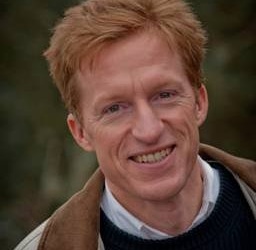Dan Lamb is a member of CIPA’s teaching faculty. He spent two decades in government, serving as a U.S. congressional aide for 15 of those years. His experience also includes public transit management and public infrastructure consulting, and serving as an aid in the New York State Senate. He currently serves as the Deputy Supervisor for the Town of Dryden, New York. He draws on his professional and academic experiences for the courses he leads at CIPA including Politics, Policy and Political Management, which examines how contemporary politics impacts public policy; and Consulting for Nonprofit and Government Organizations, which is a part of CIPA’s Public Engagement program.
- Why do you recommend that students attend CIPA -vs- another graduate policy program?
Being a large research university with a Land Grant mission, Cornell offers a broad scope of academic research, expertise, and diversity to MPA students. This is extremely beneficial given the variety of policy topics students may need to explore while performing coursework.
- What do you enjoy most about teaching at CIPA?
I enjoy hearing fresh perspectives and proposed solutions from students regarding political, public, and nonprofit sector challenges.
- Briefly describe your research and teaching interests.
I’m interested in helping MPA students develop tools needed to be leaders in public service and civic engagement – areas where I have spent much of my professional career. I want to help students develop their understanding of political systems and their impact on policy-making at local, state and federal levels of government, collaborative decision making, the roots of civic disengagement and remedies, as well as the ability to work in diverse settings with diverse partners.
- What specific course(s) do you teach for CIPA students? What skills do students take away from your course(s)?
In Politics, Policy, and Political Management, students will:
- Identify and evaluate key points of influence and players in the policy-making process.
- Think analytically about policy-making: breaking down proposals into components concerning timing, background, constituencies, politics, potential impact and likelihood of success.
- Understand the policy making process from the point of view of elected officials, staff and external interest groups.
- Understand relationships and political interplay between federal, state and local government in the implementation of public policy.
- Apply policy making theory to analyze recent legislative actions and to forecast pending outcomes.
In Consulting for Nonprofit and Government Organizations, students will:
- Gain firsthand experience engaging nonprofit or government clients in a professional consulting capacity to support an organizational mission or address a public policy or management issue.
- Develop an understanding of standard consulting practices, such as project development, formal client engagement instruments, professionalism, and business communication; students will begin to hone their skills in project management.
- Gain exposure to a variety of approaches, tools and methods, both quantitative and qualitative, that can be leveraged to address a range of policy or management problems, issues, and opportunities for clients.
- Engage in research collection and analysis to gain an understanding of the policy, management and social issues related to their clients’ missions and projects.
- Practice project planning and management and the development of recommendations and calls to action.
- Learn the skills of professional presentation and writing, as well as how to market the skills and experience they gain in the course both in print and online.
I also developed a new course recently — Intergovernmental Relations — which offers an overview (and first-hand accounts) of how different levels of government interact and respond to various policy issues, such as: transportation, health care, budgeting, and environmental protection.
- What advice do you have for students who want to make the most of their two years here?
Explore new subjects, maintain an open mind, and embrace team-based, applied learning.
- Where are you originally from? How long have you lived in Ithaca?
I grew up in a military family, living on both coasts, the Midwest, and Canada. I’ve been in greater Ithaca, off and on, for 25 years.
- What’s your favorite Ithaca restaurant and why?
Northstar House in Fall Creek: Undergrads haven’t discovered it…shhh! It shows soccer games and offers great vegetarian selections.
- What one fun activity would you consider a “must-do” for students during their tenure here, in order to get the full Ithaca experience? Why?
Play soccer with the Ithaca United Soccer Club (www.ithacasoccer.com) It’s a fun way to meet people and get some exercise, and it’s open to all skill levels.

